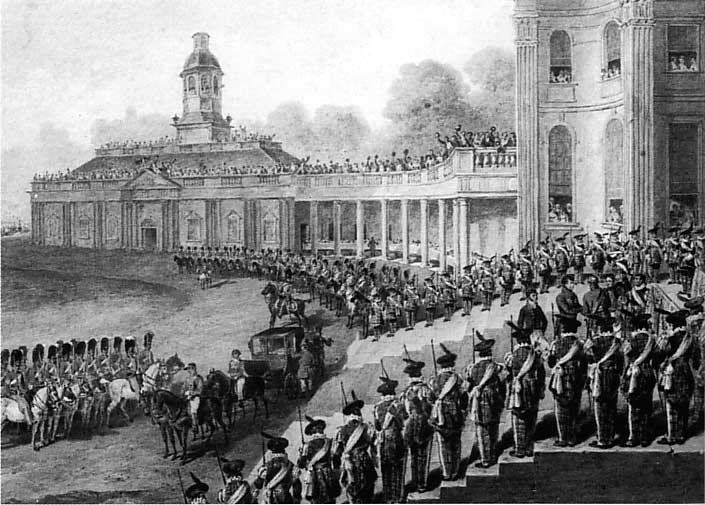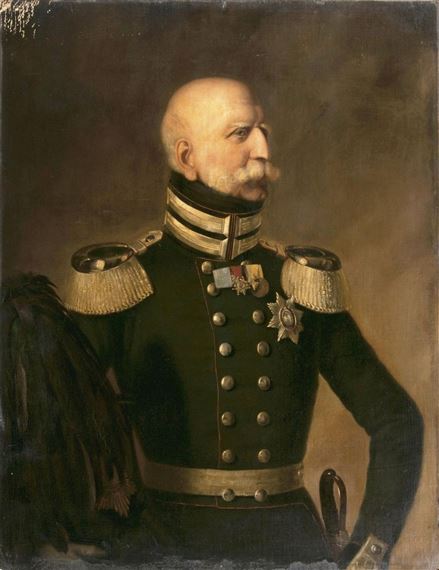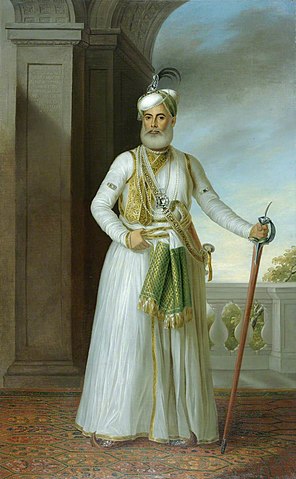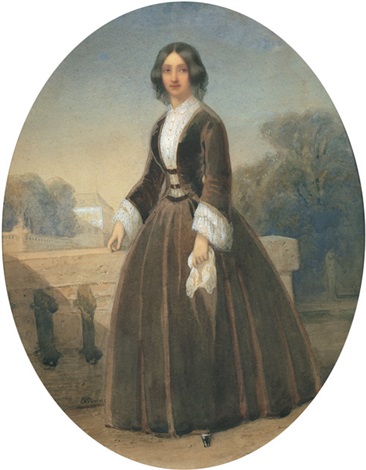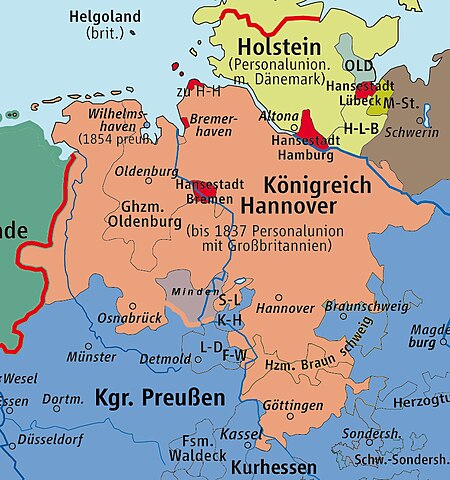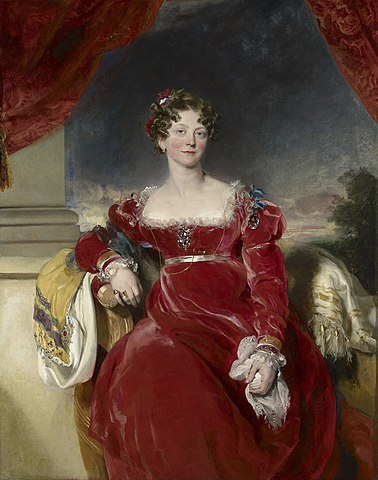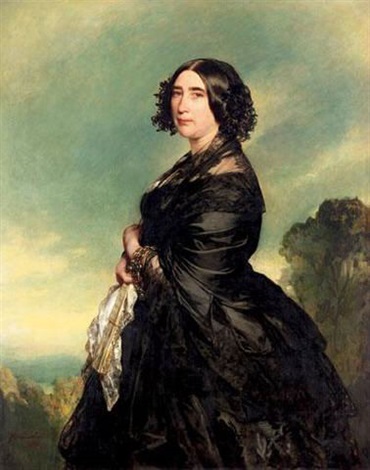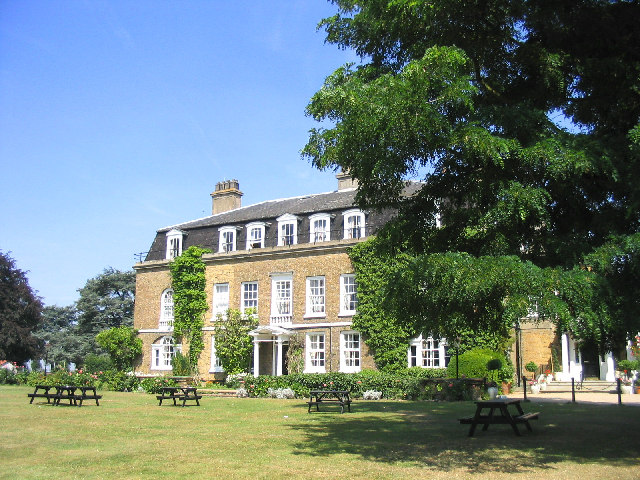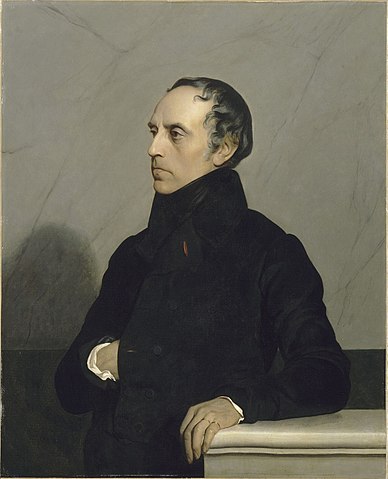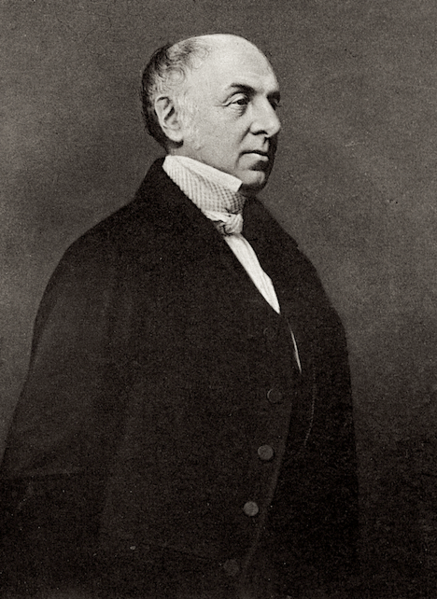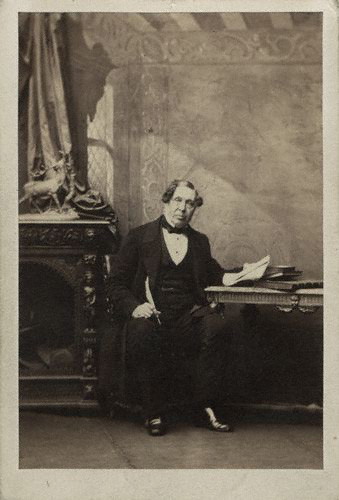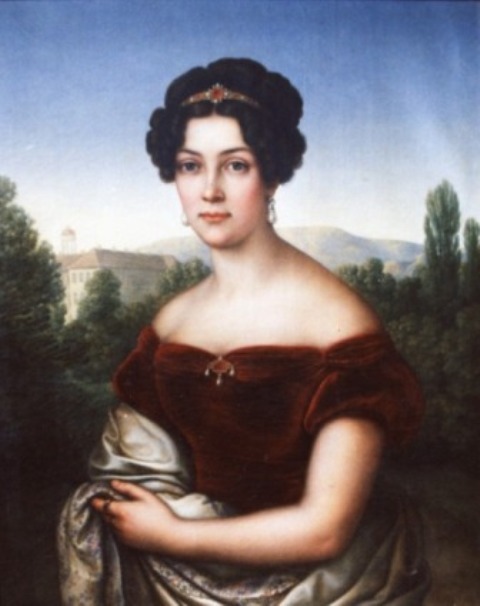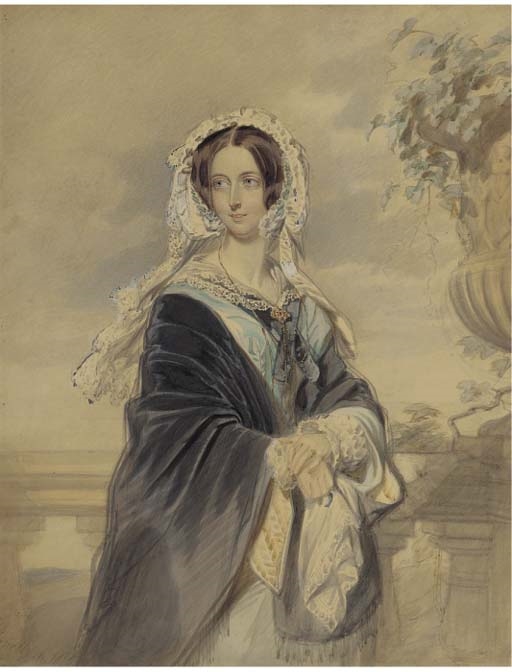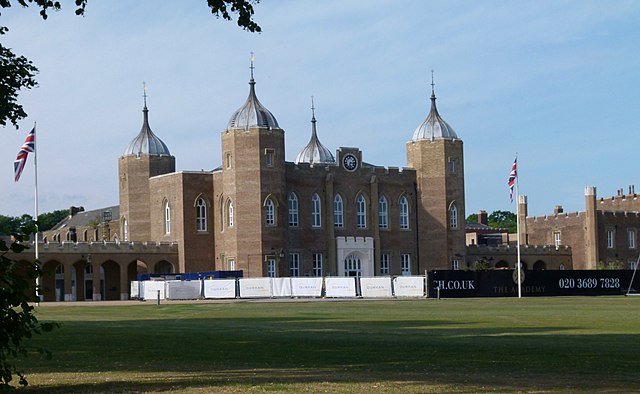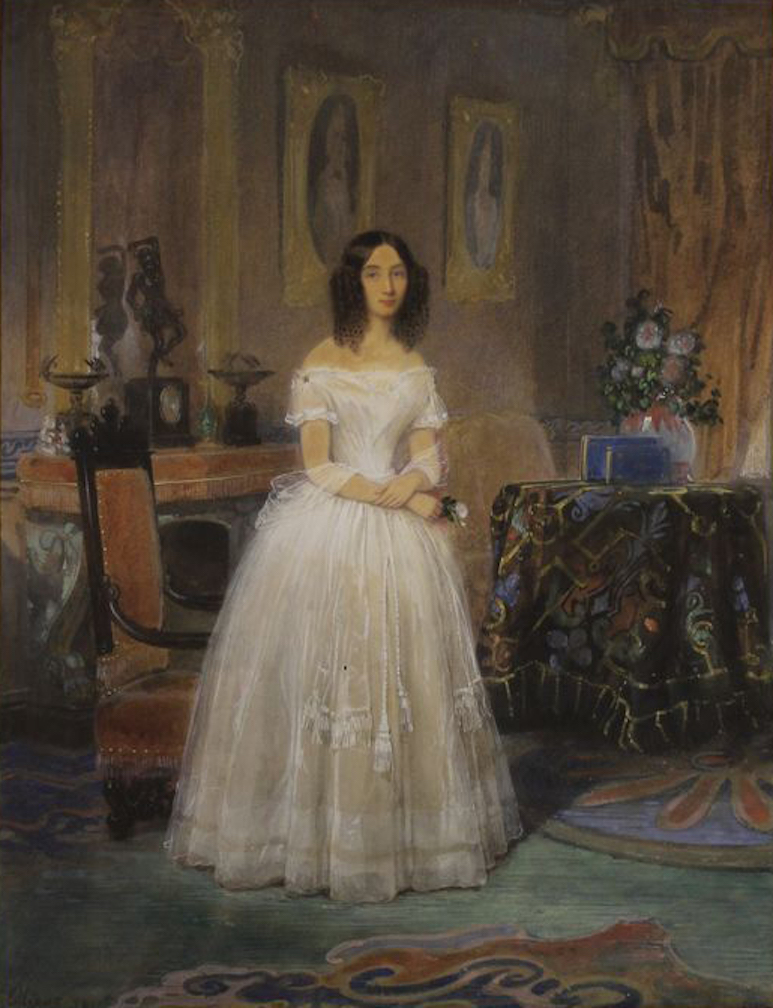King George V
Part Three, Chapter Fourteen: Courts and Courtings
Part Three, Chapter Fourteen: Courts and Courtings
As the King prepared to leave Burg Rheinstein for Coburg, a rather brusque note reached Trechtinghausen from Rosenau. Hereditary Duke Ernst conveyed his sincere regrets that “circumstance makes it impossible that we might receive you at this time” and suggested that George V might “wish to call upon us at a future time when we are better suited to accommodate Your Majesty as we would wish”. The King was not pleased, neither did he believe Charlie Phipps when he suggested that the cancellation might be because there was “rather a lot of flu about”. George knew better. Though he could not confirm his suspicions, he was right to suppose that the Hereditary Duke had been forced to withdraw his invitation on the orders of his father, the Duke of Saxe-Coburg and Gotha. Ernst I had little cause to show any kind of hospitality to the British Royal Family and from his sickbed at Ehrenburg, he declared “That boy shall never set foot inside a palace of mine whilst I still draw breath”. His prejudices were not entirely without foundation. It must be remembered that King George IV and Queen Louise had subjected Ernst I’s sister Victoria (Duchess of Kent) to little more than a smear campaign which saw her flee into exile without a penny to her name. Though Victoria was partly responsible for what came next, the fact remained that she died in an asylum in Bonn in 1833, kept away from her daughter and her reputation in tatters. [1]
Then came Dowager Queen Louise’s vicious treatment of Prince Albert, Ernst I’s youngest son, who might have married Princess Charlotte Louise had things turned out differently. The situation had been far more complex than that but clearly, just as he blamed the British for what had happened to his sister, Ernst held a grudge that Albert had been sent so far away to marry a woman he barely knew, despite his successes since that time. [2] But even if Ernst was fair-minded enough not to rest the sins of the parents on the shoulders of their son, the last twelve months had hardly given the Duke cause to warm to George V either. Not only had he snubbed Ernst’s brother Leopold by refusing to call on him in Brussels during his last tour of the continent (something which was now a favoured topic of gossip at the courts of the minor German states) but he had also nearly wrecked the chances of the Hereditary Duke marrying Alexandrine of Baden because George V wished to force a marriage between the now Hereditary Duchess of Saxe-Coburg and Gotha and George’s controversial Cambridge cousin. In other words, it was little wonder that Duke Ernst was not as forgiving as his son and that he put pay to any suggestion that the King might use Coburg as a stopover on his journey to Leipzig.
It was therefore decided that the King should remain at Trechtinghausen for two more days whilst Charlie Phipps replotted the royal progress, the new travel plans taking the party from Trechtinghausen to Rumpenheim instead where George could spend a few days with the Hesse-Kassels before moving on to Leipzig via Eisenach instead of Coburg. Prince Frederick and Princess Louise of Prussia were delighted to have the King in their company for a day or two longer and as the weather was particularly fine, they arranged a grand picnic to be held on the river bank below their castle. The guests at Schloss Sooneck were invited to join Frederick and his houseguests as they made their way down the mountainside to a carefully selected spot but though the word ‘picnic’ might suggest images of tartan blankets on the ground and a few rounds of hastily prepared sandwiches, royalty in the 19th century prove that even the most informal of meals could be transformed into something truly magnificent.

Burg Rheinstein.
A small army of servants were dispatched from the castle above to carry down heavy wooden tables with extra leaves inserted which were then draped with fine linens of white and scarlet upon which fine Meissen porcelain in white and gold hand-painted with flowers and cherubs was carefully laid out with military precision. Hampers arrived bearing vast quantities of food that included consommés of chicken or vegetables, poached turbot and wild salmon, thin slices of smoked beef from Hamburg served with creamed spinach, a whole saddle of venison, roast woodcock and a boar’s head stuffed with the forcemeat, wrapped in bacon and glazed with cognac, all topped off by the puddings and sweet courses with generous offerings of fruits, jellies and ice creams. Nobody sat on the ground because antique chairs were carried from the ballroom of the castle, down the mountainside for their comfort and arranged at small round tables. Whilst the guests were encouraged to serve themselves, each little group had two footmen to clear their dirty plates and to keep their crystal glasses topped up with champagne, Riesling or Sauternes as the courses dictated.
Despite his impressive luncheon, the King seemed distracted. He was allowing his irritation at the change in his travel plans to dominate his mood and he became a little sulky as a result. Try as she might, Frau Wiedl could not lift his spirits but she suspected someone else could. With the extended Prussian family present, Wiedl began to circulate when the meal was concluded and proposed to one or two of the guests that they might take a riverside walk after luncheon. Most declined politely, perhaps the thought of such an excursion after such a heavy meal was weighing on them just as much as the rich and buttery foods yet to be digested. But Wiedl headed for one guest in particular – Agnes of Anhalt Dessau. Wiedl was no fool. She had watched the King dance with Agnes at the gala at Burg Rheinstein the previous evening and how, when the waltz concluded, the King invited the Princess to come and sit with him, Frau Wiedl and Charlie Phipps to help Agnes get over any residual embarrassment from her little tumble. Agnes made the King laugh. She was bright and outspoken, a little too energetic maybe, but she had helped to put George in a much better mood than he had been after his own stumble earlier that day which left him sodden with the waters of the Rhine.
Initially, the Duchess of Anhalt-Dessau refused to allow her daughter to go with Frau Wiedl as the party assembled. Prince Alexander and Prince George led the troupe, promising to point out the Clementskapelle on the other side of the river bank, Prince Carl of Solms-Braunfels and his mistress Madeleine Buhr walking behind them with Charlie Phipps and Frau Wiedl. The King languished behind, kicking at the ground as he walked away slowly from his table.
“Oh very well”, the Duchess suddenly snapped, spying the King wandering alone, “You may go Nessa. But do not talk too much and do not dirty your gloves”.
“Might I go too Mama?!”, an excited Princess Maria Anna asked.
“Of course not!”, her mother snapped, “They do not want silly children underfoot, really girl, you are too ridiculous. Go on now Nessa. And for goodness sake, do not slouch - or run!”
Beaming with every step, Agnes was too excited to pay any attention to her mother's cries and dashed towards the back of the group – placing her directly beside the King.
“Ah”, he muttered, his tone not altogether a welcoming one, “It’s you...”
“Mama said I might join the walk after all”, Agnes said, noticing the King’s dull mood, “So here I am!”
“Yes. Here you are”
After a few moments of silence as Frau Wiedl seemed to rush the rest of the group forward, the effervescent Princess clearly felt the awkwardness of the situation too much to bear.
“You’re very grumpy today”, she said matter-of-factly, “Mama is grumpy too. But then she’s always grumpy”
“Is she indeed…”, the King said, scowling a little and staring at the ground.
“Yes she is”, Agnes said, hopping a little, “Papa says it’s because she has a lot of headaches but then Mama says I cause the headaches so I don’t know what I should think about it all”
In spite of himself, George felt the corners of his mouth lift a little.
“What do you do to cause such headaches?”, he asked, somewhat playfully.
“I never know”, Agnes prattled on, “Mama won’t tell me. She tells me lots of other things but never that. Do you like swimming?”
“I-“
“I can’t swim”, Agnes said looking up into the sky, “I tried once but Mama didn’t think it was proper and I swallowed lots of sea water so I didn’t try it again. I should like to though. I think...”
George felt his shoulders relax slightly. Frau Wiedl looked back for a moment and smiled as she pretended to be totally immersed in Prince Carl’s description of a Roman mosaic he had seen recently at a castle in Rottweil. She gazed upon the scene just long enough to spy the King burst into a peal of laughter as Princess Agnes seemed surprised by her achievement.
“How very interesting”, Frau Wiedl said out loud, turning quickly back to Prince Carl, “Very interesting indeed”.
From Trechtinghausen, the King and his group moved on to Rumpenheim, the atmosphere there proving a little tense as the family prepared for Princess Auguste’s wedding to Prince George of Cumberland in two months’ time. Princess Louise Charlotte had given her assurance that she would give her blessing to the marriage if Auguste waited until her 20th birthday. That had not yet come but still, Prince William was holding his wife firm to her promise – which didn’t please her much. Princess Louise Charlotte had very firm opinions on what sort of gown her daughter should wear, what flowers she should carry and whom should be invited. She was determined not to allow Princess Mary to dominate the arrangements as she had for Princess Augusta’s wedding earlier that year to the Hereditary Grand Duke of Mecklenburg-Strelitz. Mercifully, the King was only to stay at Rumpenheim for a night or two and he joked to Charlie Phipps that he had visions of “my two aunts, swords drawn, right there in the aisle of the Chapel Royal – and it may well come to that”. [3]
Then it was finally onto Leipzig, or more precisely to Gaussig, the palladian manor house in Bautzen leased for the Princess Royal by Queen Louise in 1839. Gaussig had been home to the Princess Royal for nearly five years and the King was greatly impressed by “the comfort of the house and the efficiency of the staff” when he arrived there. This efficiency was the achievement of Lady Dorothy Wentworth-Fitzwilliam, daughter of 5th Earl Fitzwilliam, Governess to the Princess Royal and a close friend to Princess Augusta of Cambridge who had shared the house at Bautzen with ‘Dolly’ until her recent marriage. Indeed, the sole purpose of the King’s visit to Gaussig was to ensure that the departure of Princess Augusta as grand chatelaine of the estate did not cause any disruption to the Princess Royal’s progress and he was greatly relieved to find that whilst Augusta had provided a key link to Missy’s family in her development, his daughter had formed a strong attachment to Lady Dorothy too. But the King was aware that others in the household may resent Dolly for her lack of status, after all, an order from a Princess would always be taken more seriously than that given by the daughter of an Earl - and a foreigner to boot. To that end, the King decided to create Lady Dorothy Wentworth-Fitzwilliam ‘Lady Steward of the Household of the Princess Royal’. Lord Steward was an ancient office granted to senior royal household staff members who served as the heads of other royal households such as that belonging to the Prince of Wales or the Duke of York but never before had there been a female appointed to such a lofty position. Whilst this would have been considered the thin end of the wedge at Buckingham Palace, Dolly's counterparts consoled themselves with the fact that at least this new ‘Lady Steward’ was far away from their cloistered private dining room in Windsor to cause them any bother.

The only surviving portrait of Lady Dorothy Wentworth-Fitzwilliam (later Princess Dorothea von Botticher) taken some time in the 1890s.
Lady Dorothy took her new role extremely seriously and her devotion to her charge (coupled with her discretion) made her an invaluable asset to the Royal Family but also, a much-loved friend. When Missy finally returned to England in 1853, Dolly accompanied her and climbed even further up the household pecking order when she was appointed Mistress of the Robes to the Princess Royal and in this position, became a kind of honorary aunt to both Missy, her siblings and half-siblings [4]. Yet nothing good lasts forever and when the Princess Royal married in 1861, Dolly elected to remain in England where she became a lady-in-waiting in the Queen’s Household. This did not please Princess Marie Louise one bit and she sulked for months but Lady Dorothy’s decision was a boon to historians for it is from Dolly that we gain a unique and invaluable insight into the life and times of King George V, his family and his court [5]. From her appointment as Lady Steward in 1843 until her death, she kept an extensive (some might say exhaustive) set of journals in which she diligently recorded the lives of those she served. These diaries offer more than catty gossip or opinions on evening gowns too. In the case of the Princess Royal, they show us just how well she was progressing at the Heinicke School in her childhood and Dolly even kept a list of the words and phrases the Princess was learning, remarking on their clarity of sound or highlighting which of them Missy struggled with – she would then use these in every day parlance until they were perfected.
In one of her first entries, Lady Dorothy recounts the visit of King George V to Herrenhausen for Hanover Week in August 1843 which saw the Princess Royal make her very first appearance in public at the age of just 5 years old.
HMK instructed that PR should ride out with Dss of Cambs and Pss MA – I sitting beside – crowds most appreciate and kind. PR in pale blue with lace trim, basket-weave hat and white flowers. All very pretty. Much taken with the crowds and waved gaily and happily which they met with applause. She did not care much for the horses who were most restless – much reassurance given. [6]
But true to form, Dolly does not concern herself only with the trappings of royalty or pomp and pageantry. Another entry reveals that the atmosphere at Herrenhausen was “really most unpleasant”…and she tells us why.
D&Dss Cambs very sombre pair. She has not smiled since our arrival and her greeting very cold, almost perfunctory. He far warmer as he always is but so drawn and clearly v. tired with everything. All talk here behind closed doors is of the FritzCambs who have caused yet more unpleasantness. Both D&Dss very quiet. Am told she is to go to N/Str within the week b/cos she cannot bear to be at H/hausen for much longer. All gossip and whispers. Very unpleasant for them. Supper good, sat next to Chips – plum cake steeped in white brandy with cream – GR 3x! [7]
Lady Dorothy was perfectly astute in her assessment of the mood at Herrenhausen (though the King may not have approved of her keeping a tally of the number of servings he had at dinner) and she was quite correct in attributing the Cambridges’ sour mood to yet another stab at their dignity from their disgraced son and heir. When the Cambridges left Herrenhausen for London for the wedding of their daughter earlier that year, they stayed on a week or two longer than they might have done ostensibly because they had matters to settle at their Piccadilly mansion but in fact, they had been advised to drag out their absence from Hanover until a rather unfortunate matter was settled. George Cambridge had relocated to Erfurt, some 160 miles away from his family home in Hanover and yet now, despite his father forbidding him to ever darken the Cambridge door again, the Earl of Tipperary was on his way back to resolve a dispute which he hoped might, quite literally, improve his fortunes.
Upon his marriage, the Duke of Cambridge handed over the princely sum of £500 to his son with which to disappear off into the night with his bride. This was hardly chump change when one considers that the average annual wage of the working man in England in 1843 stood at just £15. The Earl of Tipperary however, was not used to living on a budget. He had already displayed a severe ignorance of frugality and was no stranger to amassing debts. Whilst he had the common sense to spend a decent amount of his windfall on securing a ten-year lease on a farm house in Kirchheim as a marital home, the remaining monies quickly dwindled as he attempted to maintain the style to which he had become accustomed – and as his wife determined to prove that whilst she was no Princess, she had every intention of living like one. Indeed, the FritzCambridges' (as the couple were nicknamed in the courts of Europe) servants were instructed to call Franziska Her Royal Highness and that, if anybody called, they were to say “I shall see if the Princess can receive you”. It was symptomatic of the delusions of grandeur the couple had in common but delusions can be expensive fancies, as the FritzCambridges quickly discovered.
With an estimated £230 now owing to a Prussian bank, time was running out and George Cambridge had to act quickly to avoid the shame of destitution. He could not ask his father for more money, he doubted it would be given if he did. Thus, he decided to use the remaining funds he could muster to hire a lawyer to represent him in a legal case whereby he intended to secure the FritzCambridge fortune for life. When Franziska’s uncle, the Bishop of Hildesheim, died in 1840 he bequeathed his entire estate to his niece – a bequest which amounted to some £22,000 (the equivalent of £1.3m today) and which was to be released to her in full when she reached the age of majority or when she married (which in legal terms amounted to the same thing). The executors of the Bishop’s estate (the monks at the Benedictine Abbey of St Godehard) had allowed the Bishop’s brother to administrate the trust that had been established and though we do not know what their terms were, by 1843 Franziska’s father had barrelled his way through two thirds of the inheritance. Now, the Earl of Tipperary determined that not only would he petition for the remaining third to be handed over to his wife but that she was also entitled to the Fritz estate at Emmerke which had been purchased by the trust, supposedly in her name and interest.
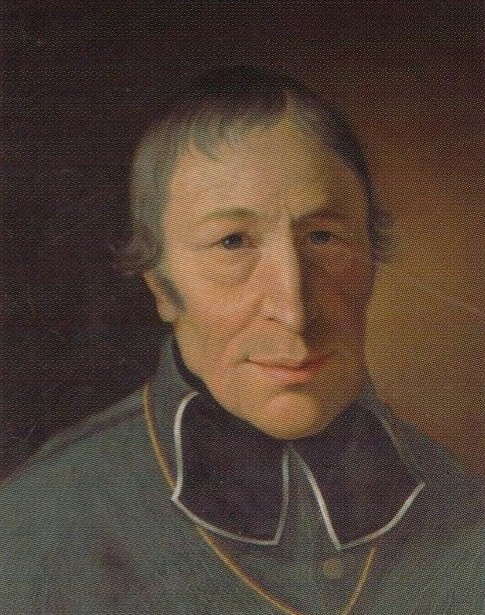
Ferdinand Fritz, Bishop of Hildesheim
In the usual way of things, this would be a simple dispute to be mediated by the provincial government where the will of the late Bishop was read – but there was a complication. This meant the petition would be presented in Hildesheim, where Franziska’s father August was High Bailiff. So it was that George Cambridge was advised to take his case directly to the Hanoverian parliament, the Lantag. Just as in England where the House of Lords provided a Committee of Privileges to oversee disputed claims of inheritance (mostly concerning peerages), the Assembly of the Estates had a similar committee which took up unresolved petitions from the provincial governments as a form of appeal. The problem was that this would undoubtedly bring even more attention to the case, something which the Duke and Duchess of Cambridge desperately wanted to avoid. As a concession, the hearing was at least scheduled for when they were out of the country so that they would be spared the worst of the gossip but the outcome of this petition was to ensure the FritzCambridges remained a topic of interest for weeks, even months, to come.
At the heart of the case was a very simple question; had the conditions of the late Bishop’s will been met so as to warrant an order from the committee that the trust and all its assets established on Franziska’s behalf should now be handed over to her? On the first condition, Franziska failed – she had yet to reach the age of majority. But on the second, she stood a much better chance and this is what the FritzCambridge lawyer focused upon when he presented the Earl of Tipperary’s case – Franziska was now a married woman and this entitled her, or her husband on her behalf, to claim her inheritance in full. The Committee were presented with an unenviable task. This went far beyond the usual family squabble over a few hundred thalers or disputed ownership over a plot of farmland. What the Committee would now have to unpick, stitch by arduous stitch, was whether Franziska Fritz was legally married in the Kingdom of Hanover. The affirmative was likely to rouse royal displeasure. The negative may well suggest that Hanover’s parliament was not as sovereign as the constitution declared it to be. And just like that, George Cambridge had given the Herrenhausen gossips yet another scandal to feast upon. Indeed, some courtiers at his parents’ palace even placed bets on the outcome.
In 1819, the Kingdom of Hanover (recently elevated from the status of an Electorate at the Congress of Vienna in 1814) adopted a new constitution. This constitution was strengthened in 1833 when the Duke of Clarence, acting as Regent for King George V, promulgated a new constitution which replaced the royal patent which allowed the Hanoverian aristocracy to govern through provincial diets and to provide a bicameral parliament with an upper and lower chamber loosely modelled on the Westminster system. This parliament, the Landtag, had the right to make laws, set taxes, approve a budget and to take on ministerial accountability previously the sole domain of the absentee Chancellery based at St James’ Palace in London. The legal status of Hanover was no longer in any doubt; it was an independent, sovereign nation with its own parliament and its own judiciary. Practically, this meant that the British government could still encourage the Hanoverian parliament to take a view or legislate along similar themes to that being pursued in England but the British parliament could not force its counterpart at the Leineschloss to do so. [8]
But the question before the committee in 1843 was not whether the British parliament could legislate for Hanover (it clearly could not) but whether legislation passed before the new constitution was granted could be said to apply in the Kingdom, specifically, the Royal Marriages Act of 1772. Ironically, the House of Lords had already considered this exact question just months earlier when Augustus d’Este presented his case to claim the Sussex Dukedom. He claimed that whilst his father’s marriage to Lady Augusta Murray was invalid in the United Kingdom, it was valid in Ireland and Hanover and that as a result, he was entitled to assume the peerage. The Committee of Privileges in London resolved that the Royal Marriages Act of 1772 did not apply to Ireland or Hanover but that the Royal Marriages Act did not apply to a territory or a dominion per se, but rather to individuals. The law clearly stated that the terms of the bill applied to the descendants of King George II and thus, whether those descendants chose to marry at Westminster Abbey or on a beach in Honolulu, they were still very much bound by its consequences. [9]
The Committee in Hanover however, had a different angle to consider. George Cambridge and Franziska Fritz had married in Erfurt. Erfurt was a possession of the Crown of Prussia and thus, under Prussian law, the couple were required to apply for a civil license to marry which, having been approved, could then be presented to any official or minister who had the authority to conduct a marriage ceremony. But there was something else too. The FritzCambridges had married according to the rites of the Roman Catholic Church and according to Hanoverian law, all such marriages were to be recognised in Hanover as valid under the terms agreed when the Catholic hierarchy was established in the Kingdom in the early 19th century – which somewhat ironically had led to Franziska’s uncle becoming the Bishop of Hildesheim in the first place. With both of these factors in mind, the Committee could not declare the FritzCambridge marriage to be invalid. For one thing, domestic law stated that it wasn't. But for another, custom dictated that marriages contracted in one German state were automatically to be recognised in other states, regardless of the social consequences of that marriage in terms of rank or inheritance [10]. Whilst in England the Earl of Tipperary was considered a bachelor living in sin, in Hanover the law was crystal clear; he was married to Franziska Fritz and as a result, she was perfectly entitled to claim her inheritance.
The Committee issued its ruling. Worded carefully, it stated that it “considered that Franziska Fritz has the legal status of a married person and that, as such, the terms of the last will and testament of the late Otto Fritz, Bishop of Hildesheim, are fulfilled in accordance with the law; and that she may receive the inheritance therein bequeathed to be released to her by the executors and trustees as named in the sums and deeds hereby recognised”. George Cambridge had much to celebrate and (rather indecorously) gloated to friends that nothing would please him more than to see his father-in-law evicted from Emmerke by the same agents who were to place the property on the market for the vast sum of £30,000 – apparently August Fritz had at least improved the estate enough for it to appreciate in value. The Cambridges were kept informed of developments but even delaying their return to Hanover was not enough to provide sufficient time for the public interest in the case to subside. Once again, the Duke and Duchess made their way home to their palace where even those closest to them could be found whispering unkindly in corners. But there was also the added embarrassment that many in Hanover felt that the Duke had behaved badly. What had his son done that was so wrong that he should be left penniless, forced to embroil himself in costly and unnecessary legal battles to save himself from ruin? The conversation had now shifted from the FritzCambridge marriage to the apparent cold-heartedness of the Earl of Tipperary’s parents. Neither the Duke of Cambridge nor his wife could understand why they had suddenly become so disliked or why the public had any sympathy with their son whatsoever.
The FritzCambridge inheritance may have been the subject on everybody’s lips when the King arrived for Hanover Week but any mention of it was strictly verboten. Unfortunately, this was far too serious a matter to be ignored and as the King hosted politicians and privy councillors alike at Herrenhausen, it did not take long for news of the Landtag’s decision to reach his ears. It was played down as nothing more than a dispute over an inheritance but the King was wise enough to know it meant far more. The parliament in Hanover had openly defied him. Whether they had the legal right to do so or not was immaterial. All remaining public appearances and private audiences in the royal diary were immediately cancelled as the King summoned his most senior ministers to his presence. He wanted a full account of what had transpired and why the decision had been taken. Their answer did not please him. It was made abundantly clear that under Hanoverian law, the Committee had been given no choice but to rule that the FritzCambridge marriage was valid – and as such, the inheritance had to be granted. The King didn’t care a fig for the inheritance. He only cared that the parliament in Hanover had involved itself on a matter which the King considered to be closed and which risked opening up yet another can of worms on the subject of royal marriages. George fumed on the subject all the way home to London. [11]

Augusta, Duchess of Cambridge, c. 1850.
Left at Herrenhausen, the Cambridges had reached breaking point. They were fast becoming an object of ridicule in Hanover and neither could see a way forward. The Duchess took the situation particularly hard, already sinking into a depression sparked by the feeling that she was somehow responsible for the wrongs committed by her son. Hanover had been home to the Cambridges since their marriage in 1818, indeed some speculate today that Augusta would never have accepted Adolphus (he was after all her senior by 20 years) had she been forced to live in England [12]. Herrenhausen brought independence but it also kept Augusta away from the pettiness of the English court, not to mention that it also allowed her to live in reasonably close proximity to her own family and meant that she could be among people who shared her views, values, language and customs. This in turn enabled the Cambridges to look past the rather hasty and hurried circumstances of their marriage and build a happy life together, interrupted only by a brief sojourn back to England during the Long Regency. Back then, they had longed to return to Hanover and begged the King to allow the Duke to resume his post as Viceroy. Now, they would ask His Majesty to withdraw that appointment. At 69 years old, the Duke had held his office for almost 30 years. But now, his time at Herrenhausen looked to be coming to an end. “When all is said and done”, he wrote sadly to his sister Mary in England, “How much time do I have left to me? Our dear brother was just a little older than I. I do not wish to spend the years remaining living under a shadow”. [13]
The Cambridges would have the perfect opportunity to present their case personally to George V six weeks later when they returned to England for the wedding of Prince George of Cumberland and Princess Auguste of Hesse-Kassel. Despite their low spirits, they could not excuse themselves from the occasion given that Adolphus was the uncle of Prince George and Augusta was the aunt of Princess Auguste. But they were also under strict orders to attend under the command of the formidable Princess Mary. She had totally ignored Princess Louise Charlotte’s instructions and had compiled a guestlist of her own according to the arrangements she had made for the wedding of Princess Augusta of Cambridge and the Hereditary Grand Duke of Mecklenburg-Strelitz earlier in the year. Mary was not merely being obstinate. She was fond of Prince George and had a serious concern that he may find his side of the Chapel Royal a little sparse. After all, his father the Duke of Cumberland lived in exile and his mother was dead. He was an only child and had few friends in England beyond members of the Royal Family and their staff, who were due to attend anyway. By contrast, the Hesse-Kassels were a numerous bunch and all would expect an invitation. Mary had to cast her net wide and decided that quantity was more important than quality, dispatching a summons to the half-siblings of Prince George of Cumberland with a few Strelitz and Thurn und Taxis relations thrown in for good measure.
The King had returned to England in bad temper and the last thing he wanted to discuss was another royal marriage. However, when Princess Mary sent him the guest list, he quickly made his way to her rooms at Buckingham Palace to discuss the arrangements.
“I know what you’re going to say”, Mary said, chomping on slices of hot buttered toast and marmalade, “But I had to invite him Georgie. With any luck, the old prig will have the decency to decline but short of calling in the chimney sweeps, I cannot fill the Chapel any other way”
“What are you talking about Aunt Mary?”, George sighed.
“My brother, of course!”, she exclaimed, sending crumbs tumbling, “If all I hear is true he won’t have the money for his passage anyway. Or his boat may sink. But if he does come, we shall just have to grin and bear it”
“Oh that”, George said distractedly, “No, I wasn’t talking about that…though let us both pray for bad weather on the channel…I was talking about this…you’ve got the Anhalt-Dessaus in at St James’?”
“Well what’s wrong with that?”, Mary huffed, “There isn’t room here Georgie, not if you insist on giving the Strelitzes their usual suite and after all, they’re no relation of ours…”
George shook his head and rolled his eyes.
“Really Aunt Mary, sometimes I despair, honestly I do…”
He took out a red pencil from his pocket and began to put thick lines through some of Princess Mary’s handiwork.
“Put the Prussian lot at St James’…and then…we’ll have the Solms-Braunfels at Clarence House…and the Anhalt-Dessaus can go to Marlborough House…there”, he concluded proudly.
“Well I really don’t see what all the fuss is about”, Mary sighed, “But I shall tell the Master of the Household just the same”
“St James’ indeed”, the King said frustratedly, “It’s cramped enough as it is and the Anhalt-Dessaus were very kind to me when I was at Trechtinghausen, it won’t repay them much by tucking them away in that draughty old mausoleum”
“It’s good enough for my sister”, Mary sniffed.
“She’s mad as a march hare”, the King mused, then noting his somewhat insensitive description of his Aunt Sophia, apologised, “Sorry. I would just like there to be some order to these things. Now I must go…”
“Oh? Where are you off to? To Lisson I suppose? Georgie, they are working as fast as they can…”
Charlie Phipps entered the room and handed the King his hat and coat.
“No no, I have to go to Marlborough House”, George said hurriedly, heading out the door, “To make sure it’s ready when the Anhalt-Dessaus arrive”
“But Georgie!”, Mary called after him, “They won’t be here for…”
Astonished, the Princess looked up at a smirking Charlie Phipps.
“Really Phipps…what on earth has gotten into that boy?”
Notes
[1] A flashback to George IV’s reign here.
[2] If there’s interest, I’ll try and give a brief summary of what Albert has been upto in Brazil since his marriage but at the moment, I can’t shoehorn it into a future chapter without it feeling forced or proving a diversion!
[3] Louise Charlotte was his aunt by marriage of course, as the wife of the King’s uncle William of Hesse-Kassel.
[4] Mistress of the Robes is an office more associated with the Household of the Queen (it existed for some 500 years until last year and has now seemingly been abolished in the new reign) but Mistresses of the Robes were also appointed to the Households of the Princess of Wales, the Duchess of York and others.
[5] Hold that thought!
[6] & [7] Dolly’s code here equates to:
- -HMK, His Majesty the King
- PR, the Princess Royal
- Dss Cambs, the Duchess of Cambridge
- Pss MA, Princess Mary Adelaide of Cambridge
- D&Dss Cambs – the Duke and Duchess of Cambridge
- N/Str – Neustrelitz
- H/Hausen – Herrenhausen
- Chips, Charlie Phipps
[8] This took some researching (hence this week’s delay!) because there’s very few reliable sources out there on how the legal system of Hanover worked in terms of the personal union etc. Fortunately I was able to find some but it took some doing!
[9] This is the same ruling passed in 1844 in the OTL which raised the same questions in Hanover on this subject but in our TTL, there’s someone to actually press it further.
[10] Though it must be said this did not make a marriage equal - but that’s a whole different kettle of fish we won’t go into here…
[11] Reform of the Royal Marriages Act 1772 incoming…and a very important mechanism for the future of TTL.
[12] The OTL Queen Victoria actually speculated this too.
[13] An important issue raised here as who could replace Cambridge and does this end the permanent presence of a member of the Royal Family in Hanover?
Just a quick sign off to say that this chapter is laying the groundwork for future events which includes royal marriages (and their validity) and the relationship with Hanover. I'm sorry there's only been one update this week and that it doesn't move us on terribly far but this one took an awful lot of research (and headstratching!) and is sort of vital to underpin future themes in TTL without making them seem implausible!
That said, I hope you enjoyed it and as ever, many thanks for reading!

